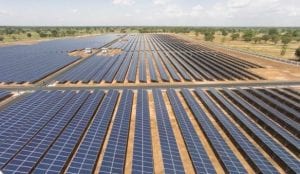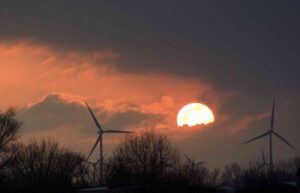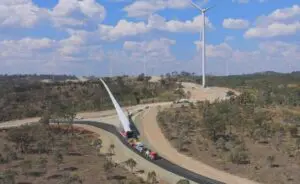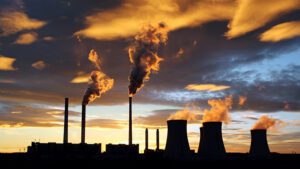In the early 90s when I was working in the oil and gas industry, I saw the genesis of a dangerous myth from a fossil fuel giant. This week, that company has been declared Australia’s biggest fossil fuel political donor.
Knowing that curbing fossil fuel emissions was potentially an existential threat to fossil fuels, in 1996 Woodside commissioned a report entitled “Lifecycle Emissions and Energy Analysis of LNG, Oil and Coal”. The report was timed to be ready for Kyoto COP 3 in 1997.
The aim was to give birth to the myth that Liquefied Natural Gas (LNG) was better for the environment because it would displace coal and yet coal consumption did not fall, LNG just added to the problem.
In November last year, with the blessing of the federal government, Woodside greenlit what will become Australia’s largest fossil fuel project in almost a decade, the Scarborough gas project.
Australian Electoral Commission data, released this week, shows Woodside also happens to be the biggest fossil fuel political donor to the two major parties in Australia and has been making donations for the past decade presumably to ensure favourable treatment for gas rather than to strengthen democracy.
Our political leaders need to re-think where their money is coming from. Climate change is putting ordinary Australians – that our major parties are meant to represent and protect – in harm’s way. Climate change is driving bushfires, deadly heatwaves, underwater heatwaves as well as intense rainfall and flooding – all of which we have already experienced this summer.
In the wake of COP26 and the US and European-led global methane pledge, Woodside is trying to convince everyone that Scarborough is ‘clean’, despite it expected to add between 800 million and 1.6 billion tonnes of greenhouse gas emissions over the life of the project. LNG contributes strongly to climate change and it slows down the adoption of crucial renewable and zero emissions energy.
The reality was that Woodside always intended to push as much LNG into the market, come what may. That remains the case today.
In their report “Net Zero by 2050”, the International Energy Agency states that there can be no new coal, oil and gas fields if we are to limit temperature increases to below the critical threshold of 1.5 degrees. It predicts that global traded LNG exports could peak in 2023 and rapidly decline thereafter.
Perhaps Woodside believes it can be the last man standing or that a future government will bail out a stranded asset? Either way, a big call.
Repeating a myth does not make it so. Gas is a fossil fuel.
Greg Bourne is a Climate Councillor, a former President of BP Australasia, and a former advisor to Margaret Thatcher.









